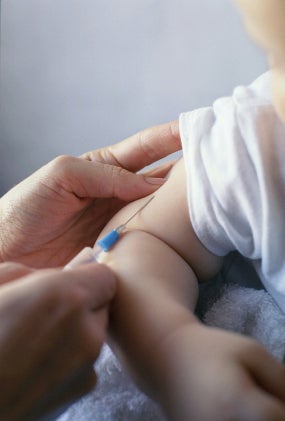When Science and Justice Clash
By conceding the plausibility of an autism-vaccine link, some think a federal claims court unwittingly gave ammo to a dangerous theory

Paul Offit has written an op-ed in today’s New York Times which hastens to point out what other news stories have largely misrepresented in the Hannah Poling autism lawsuit: The outcome of the court ruling does not mean the government is admitting to a causal link between childhood vaccines and the onset of autism. Rather, it is an indication that a special federal claims court enlisted to hear vaccine-related cases has made a ruling based not on the preponderance of evidence but on biological plausibility.
Hannah Poling is a now nine-year-old girl who, at the age of 19 months received a handful of vaccinations. In the following months, she presented symptoms of autism. Her parents filed suit against the government, claiming the vaccines caused her autism. During the trial, it was revealed she had a cellular disorder that keeps her body from absorbing nutrients correctly, which was thought to be a catalyst for her autism. The plaintiffs argued the vaccines stressed her weak cells and made the disorder more severe. At no point was this claim verified; the court simply conceded that it was biologically plausible and therefore awarded in her favor.
The international scientific literature is remarkably consistent and clear on its having demonstrated no link between autism and vaccines; yet a vocal minority of parents across the country continue to further the notion that the government is lying about the evidence. What is harmful about this decision, Offit argues, is that it opens the door to legitimize unfounded theories in the face of peer-reviewed fact.
Ultimately, the worry is that the misinformation campaign will take hold and lead more parents to forgo vaccination for their children. While this is not a problem for the population at large when only a small number of children are not immunized, it becomes a serious public health threat when the numbers increase.